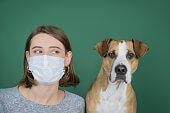
DOGS AND FOOD ALLERGIES
EVERY PET OWNER SHOULD KNOW ABOUT DOG FOOD ALLERGIES
There are all kinds of websites promoting products such as “allergen-free dog food”, “limited ingredient diets” and others in the hope of helping pets with allergies. But are they really effective, though?
Surprisingly, food allergies are not as common as many pet food companies and websites may have you believe. While food allergies are one possible cause for your dog’s itchy skin and ear infection or your cat’s diarrhea, there are many more likely causes that may have nothing to do with the food.
JUST WHAT IS A FOOD ALLERGY?
A food allergy occurs when an animal’s immune system misidentifies a protein from a food as an invader rather than a food item and mounts an immune response. The end result of this response can be itchy skin or ear and skin infections in some pets, while it may cause vomiting or diarrhea in others. Some unlucky pets will have both skin and gastrointestinal symptoms, however, food allergies have to be distinguished from numerous other more common causes of these issues.
WHAT ARE SOME OTHER GASTROINTESTINAL PROBLEMS IN DOGS AND CATS WE SHOULD BE AWARE OF?
There are many causes of gastrointestinal problems in dogs and cats – parasites, viruses, bacterial infections, eating something they shouldn’t, and dozens more. For pets that have symptoms only on certain diets, it could be due to a food allergy, but it could also be due to an intolerance – the food may have too much fat, too much or too little fiber, or have other properties or ingredients that don’t agree with that particular pet, but aren’t due to an allergy.
SOME OTHER CAUSES OF ITCHING, AND SKIN AND EAR INFECTIONS
The most common cause of itching, skin infections, and ear infections in both dogs and cats are fleas, allergies to fleas, and environmental allergies – dust mites, pollen, and grasses. Both flea allergies and environmental allergies are MUCH more common in pets than food allergies but fleas, environmental, and food allergies can all have similar symptoms.
DIAGNOSIS OF FOOD ALLERGIES
What makes determining food allergies so hard is the fact that there isn’t really an easy test to use. While many tests – using blood, saliva, and more hair – that can be performed by a veterinarian or purchased by a pet owner online ( like Groupon ) advertise that they can diagnose food allergies or “sensitivities”, there is no proof that they work.
None of the currently available tests have been shown to be accurate – that non-allergic dogs test negative and allergic dogs ( and only allergic dogs ) test positive. The fact is that multiple studies have shown that these kinds of tests are not very helpful in diagnosing food allergies, despite their widespread use for this purpose. Research results presented at a veterinary dermatology ( skin ) conference even showed that some tests “diagnosed” plain water and stuffed animal “fur” as having food allergies.
The best method that we currently have, for diagnosing food allergies is the dietary elimination trial. Which means feeding your dog a diet purchased through a veterinarian or carefully made at home that contains only a few ingredients ( typically one protein and one carbohydrate plus necessary fats, vitamins, and minerals) that your dog has never been fed before or that are hydrolyzed ( where the proteins are broken down into very small pieces that can hide from the immune system ) or purified to remove the parts that are likely to cause allergies. This diet is then fed as THE ONLY FOOD OR FLAVORED THING TO GO INTO YOUR PET’S MOUTH for a least a month but potentially several months, depending on your pet’s history and type of issues.
If your pet’s signs dramatically improve during the trial, then to confirm a food allergy, your pet then has to go back to the old diet again. A quick relapse is suggestive of an allergy to an ingredient in the old diet. You then go back to the test diet until things get better again before trying one ingredient from the old diet at a time until you identify the specific foods that trigger the problem.
Many people switch diets and their pets improve, but they never retry, so we can’t know if it was coincidence or the diet that actually helped the dog. We often see this when the seasons change – dog owners assume it was the diet that caused the improvement in their pet’s allergies when it was actually because of seasonal allergens – such as certain pollens – were much reduced.
THEIR AREN’T ANY ALL IN ONE “ALLERGY DIETS”
There aren’t any diets that are completely “hypoallergenic”, meaning that they will not cause allergies. The closest there is to this kind of diet is the hydrolyzed diets that can be purchased through veterinarians. Dogs and cats can both be allergic to almost any protein or carbohydrate ingredient that can be found in pet food. Providing a diet with duck, kangaroo, lamb, or venison doesn’t prevent food allergies, it just makes it likely that if your pet develops one, it will be to that protein instead of something more common like pork or chicken. Likewise, there isn’t any evidence that continually changing ( rotating ) diet ingredients prevent food allergies, but it definitely can limit diet choices in trying to find the problem ( since every ingredient your pet has eaten before is no longer available to be used in a dietary elimination trial ).
WHICH FOODS CAUSE THE MOST ALLERGIES IN PETS?
The overall percentage of dogs and cats that have food allergies is low, but there are some ingredients that are associated with more of the confirmed cases than others. The most commonly reported food allergies in dogs and cats are chicken, beef, dairy, and egg ( and fish for cats ). There is nothing particularly unique about these ingredients other than they have been the most common ingredients in pet foods for the past few decades, so both cats and dogs often have been exposed to them a lot. What surprises a lot of pet owners is that grains are actually uncommon causes of food allergies – most pets are allergic to animal proteins. Of course, there are exceptions and some pets are allergic to a specific grain, or even another plant-sourced ingredient such as potato, or maybe a carrot, but this is less common than an allergy to an animal protein.
The sad part of all this is that this information doesn’t prevent hundreds of companies from advertising their grain-free diets for pets. Gluten allergies seem to extremely rare in pets, having been clearly documented only in Irish Setter dogs, possible in Border Terrier dogs, and never in cats.
THE “DIET TRIAL”
There are many companies that make over-the-counter diets that they market as being good for dogs with allergies, but they usually can’t back up the claim. Many of these so-called “limited ingredient diets” contain more than 1 protein and 1 carbohydrate source. They may contain fruits and vegetables, alfalfa, kelp, or other ingredients that could interfere with a diet trial. Even those that only have 1 protein and 1 carbohydrate, as well as the necessary vitamins and minerals listed on the bag, may still be contaminated with other ingredients.
Several studies recently have shown that large proportions of over-the-counter diets contain ingredients ( admittedly sometimes in very small amounts ) not listed on the label, probably due at least in part to the common industry practice of running one diet after another in the same manufacturing line at the factory, without a thorough cleaning in between ( this is like human foods that are labeled as being made in a factory that also processes nuts – even though they don’t contain nuts, they could have some nut residue ).
Because of the high risk of contamination for over-the-counter diets, we strongly recommend using a veterinary diet for your dietary elimination trial ( either novel ingredient or hydrolyzed, depending on the individual pet ) or a carefully prepared home-cooked diet designed by a board-certified veterinary nutritionist.
The best diets for a food trail have 2 – 3 ingredients plus fat sources ( which are very low risk for allergies ) and supplements. Diets for a diet trial should never include fruits and vegetables ( unless a vegetable like a potato is one of the 2 – 3 ingredients ), herbs, or ingredients such as kelp because they can make it hard to interpret the results if your pet doesn’t improve on the diet.
CONCLUSION
If your veterinarian diagnoses a food allergy using a dietary elimination trial with a veterinary diet or home-cooked diet, you may be able to manage your pet aftward with specific over-the-counter diets ( once the specific allergen is identified ), keeping in mind that you could see a flare-up if you unknowingly purchase a contaminated bag.


